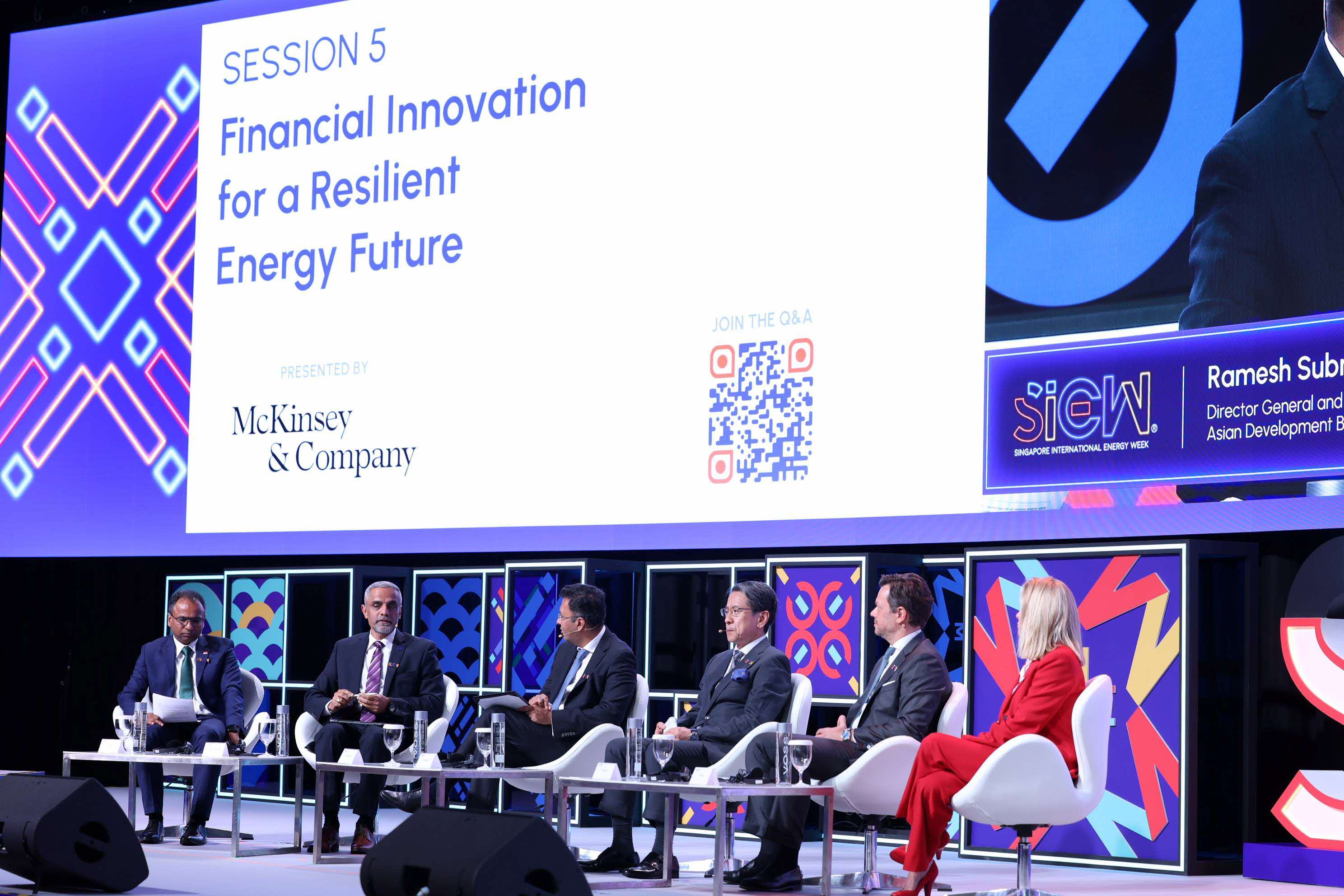At the SIEW Summit, energy experts discussed the pressing challenges of scaling up decarbonisation efforts. Moderated by Vishal Agarwal, Senior Partner, McKinsey & Company, the discussion focused on the importance of financing and carbon pricing in making decarbonisation projects viable.

One of the key takeaways from the session was that there are no one-size-fits-all solutions. Each country faces unique challenges, and understanding these local factors is essential to developing effective strategies that reduce costs and enhance project affordability.
“Context differs from country to country. You cannot apply the same one-size-fits-all type of approach,” said Ramesh Subramaniam, Director General and Group Chief Sectors Group, Asian Development Bank.
Implementing innovative financing approaches
The panel discussed the importance of innovative financing strategies to increase the bankability of decarbonisation projects. Blended finance models that combine public, private, and concessional capital can help de-risk projects, making them more attractive to investors.
Lavan Thiru, Executive Director, Infrastructure Asia, put forth a proposition: activate blended finance at the early stages of development to catalyse clean energy projects.
The exploration of new financial instruments and structures is also crucial in enhancing the viability of decarbonisation efforts. A diverse range of financial products can cater to different stakeholder needs, driving capital into key areas of the energy transition.
Luca Tonello, MD and Chair of Energy and Infrastructure Asia Pacific, SMBC, shared his perspective on how carbon pricing mechanisms and emissions trading schemes can provide the economic signals necessary to drive businesses towards reducing their carbon footprints.
Role of policy frameworks and international cooperation
The discussion then centred on the important role of robust policy frameworks in driving decarbonisation. By creating regulatory environments that incentivise investment in renewables, governments can encourage the adoption of low carbon technologies.
International cooperation is also key to knowledge transfer. Establishing platforms for knowledge exchange among Southeast Asian countries would enable the sharing of best practices related to policy frameworks, financing mechanisms, and low carbon innovations.
On the low carbon innovation front: Dr Sama Bilbao y León, Director General, World Nuclear Association, discussed the need for a science-based, technology-neutral framework to guide decarbonisation strategies.
Building regional supply chains and capabilities
Another talking point is the collaborative efforts to strengthen regional supply chains and manufacturing capabilities to enhance energy security in Southeast Asia.
Maeda Tadashi, Managing Director, Chairman of the Board of Directors, Japan Bank for International Cooperation (JBIC), highlighted the need to build up the energy manufacturing base in the region.
Investing in regional production for components such as power cables, solar panels, and hydrogen/ammonia infrastructure will reduce reliance on energy imports and support rising demands.
By fostering international cooperation and implementing tailored approaches, regional stakeholders can effectively unlock investments in low carbon energy infrastructure.
Stay tuned as the conversation evolves throughout the day. Follow @SIEW_sg on Telegram and Twitter for key insights, as we navigate Day 1 together.